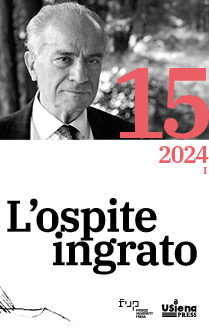«Rimettere in moto la Storia». Edoardo Sanguineti e la “redenzione messianica” di Gian Pietro Lucini
Published 2024-07-18
Keywords
- Sanguineti,
- Lucini,
- Marinetti,
- Avant-Garde,
- literary canon
How to Cite
Copyright (c) 2024 Pietro Mezzabotta

This work is licensed under a Creative Commons Attribution 4.0 International License.
Abstract
The purpose of the article is to investigate the process by which Edoardo Sanguineti, during the 1960s, pursued the ideological and poetical re-actualization of Gian Pietro Lucini. I will try to highlight how, exploiting Lucini’s disagreements with Marinetti and his ideological differences with the founder of Futurism, Sanguineti was able to produce a contemporary portrait of a poet who was, in reality, strictly embodied into nineteenth-century’s mentality. I will attempt, contextually, to contextualize this cultural backwardness of Lucini, explaining how the poet was, after all, characterized by the instinct of revolt and the will of renewal, and how his profile was “updated” by Sanguineti. The article will focus on the concept of “messianic redemption” as expressed by Walter Benjamin in his Theses on the Philosophy of History, seeking to show how it may have constituted the theoretical and political premise for Sanguineti’s critical action, which presents itself as the purpose of redeeming, through Lucini, the whole avant-garde from the shadow of fascism. This practice, which dialectically connects anarchism and historical materialism, will be considered in its empirical becoming, taking into analysis the canonization of Lucini realized by Sanguineti in his Antologia della Poesia italiana del Novecento and in the critical edition of Revolverate e Nuove Revolverate.

